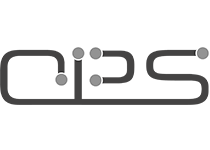Marco Fries

E-Mail: marco.fries(at)uni-siegen.de
Raum: US-D(Ludwig-Wittgenstein-Haus, Campus Unteres Schloss)
Telefon: +49 (0) 271 / 740
Consultation hour: By arrangement
Vita
Marco Fries studied business informatics at the University of Siegen. Parallel to his studies, he was employed as a dual student at GIB mbH. GIB mbH is active in the field of software development for SAP with its own products. He also wrote his Bachelor’s thesis at this company. After successfully completing his bachelor’s degree, he first worked as a software developer and later as a consultant and project manager at the same company.
After two years of full-time work, he began his Master’s degree in Human Computer Interaction at the University of Siegen on a half-time basis. His master’s thesis focused on sales planning and machine learning with the title: “A design case study on sales forecasting using machine learning in the food industry”.
After two more years as Head of Department for Global Consulting, Academy and Support, he joined the University of Siegen in August 2021 as a research assistant at the Chair of Cyber-Physical Systems. Here he is involved in the ExPro project, as well as in supporting a project to develop a regional future center for artificial intelligence.
Publications
2025
-
Fries, M., Nießner, J., Ludwig, T. & Kotthaus, C. (2025)Exploring AI Integration in SME Production Planning: Design Spaces and the Role of Workers
IN Computer Supported Cooperative Work (CSCW) doi:10.1007/s10606-025-09512-6
[BibTeX] [Abstract] [Download PDF]The pressure to improve products, services, and processes to remain competitive in the global market has fueled demand for affordable, high-quality, customized products with excellent availability and customer service. Production Planning and Scheduling (PPS) considers a wide range of internal and external factors in its attempts to align production with market demand. Advanced Planning and Scheduling (APS) systems have emerged to support PPS but suffer from issues such as deterministic views and practical uncertainties. Expectations are high that Artificial Intelligence (AI) and Machine Learning (ML) will support complex production planning tasks by analyzing operational data to generate optimal plans. However, there is currently little empirical research on production planning practices and what role AI might play. Our paper highlights current challenges in production planning practices and outlines design spaces for using AI and ML to support these practices. Based on an empirical study of three German small and medium-sized enterprises (SMEs) in the metal processing industry, we uncover how AI might estimate processing time and rework probability and thus we outline current design spaces for AI in production planning.
@article{fries_exploring_2025, title = {Exploring {AI} {Integration} in {SME} {Production} {Planning}: {Design} {Spaces} and the {Role} of {Workers}}, issn = {1573-7551}, shorttitle = {Exploring {AI} {Integration} in {SME} {Production} {Planning}}, url = {https://doi.org/10.1007/s10606-025-09512-6}, doi = {10.1007/s10606-025-09512-6}, abstract = {The pressure to improve products, services, and processes to remain competitive in the global market has fueled demand for affordable, high-quality, customized products with excellent availability and customer service. Production Planning and Scheduling (PPS) considers a wide range of internal and external factors in its attempts to align production with market demand. Advanced Planning and Scheduling (APS) systems have emerged to support PPS but suffer from issues such as deterministic views and practical uncertainties. Expectations are high that Artificial Intelligence (AI) and Machine Learning (ML) will support complex production planning tasks by analyzing operational data to generate optimal plans. However, there is currently little empirical research on production planning practices and what role AI might play. Our paper highlights current challenges in production planning practices and outlines design spaces for using AI and ML to support these practices. Based on an empirical study of three German small and medium-sized enterprises (SMEs) in the metal processing industry, we uncover how AI might estimate processing time and rework probability and thus we outline current design spaces for AI in production planning.}, language = {en}, urldate = {2025-04-07}, journal = {Computer Supported Cooperative Work (CSCW)}, author = {Fries, Marco and Nießner, Julia and Ludwig, Thomas and Kotthaus, Christoph}, month = apr, year = {2025}, keywords = {Artificial intelligence, Artificial Intelligence, Cooperative work, Empirical methods, Production planning and scheduling, Small and medium-sized enterprises, Work practices}, }
2023
-
Ludwig, T., Azabal, N., Fries, M., Nießner, J., Elsholz, U., Lützenkirchen, S., Thomas, M. & Schröder, L. (2023)KI-Kompetenzen in der Praxis: Eine Analyse deutscher KMUs
IN HMD Praxis der Wirtschaftsinformatik doi:10.1365/s40702-023-01035-2
[BibTeX] [Abstract] [Download PDF]Die rasante Digitalisierung unserer Welt hat die Entwicklung digitaler Kompetenzen zu einem zentralen Anliegen in Wirtschaft und Gesellschaft gemacht. Während globale Akteure wie die USA, China, Südkorea und Japan in technologischen Innovationen führend sind, sieht sich die Europäische Union, insbesondere Deutschland, vor Herausforderungen gestellt, um mit dieser Innovationsdynamik Schritt zu halten, vor allem im Bereich der Informationstechnologie. Die Europäische Kommission hat als Reaktion darauf eine Digitalstrategie entwickelt, um die Wettbewerbsfähigkeit und digitale Souveränität zu stärken. Der vorliegende Beitrag untersucht, basierend auf einer retrospektiven Analyse von Beratungsfällen des Zukunftszentrums KI NRW zum Thema Digitalisierung und vor allem Künstliche Intelligenz, die digitale Kompetenzlandschaft in deutschen kleinen und mittleren Unternehmen (KMUs). Die Ergebnisse zeigen, dass ein erheblicher Bedarf an Grundlagenwissen und Verständnis für digitale Technologien besteht. Auf Basis der Ergebnisse werden Kompetenzlisten vorgestellt, die spezifische, für die digitale Arbeitswelt essentielle Fähigkeiten und Kenntnisse beinhalten. Diese Listen dienen als Grundlage, um mittels Leitfragen konkrete Handlungsempfehlungen zu formulieren, die Unternehmen bei der Bewertung und Entwicklung ihrer digitalen Kompetenzen unterstützen, um den Herausforderungen der Digitalen Transformation zu begegnen.
@article{ludwig_ki-kompetenzen_2023, title = {{KI}-{Kompetenzen} in der {Praxis}: {Eine} {Analyse} deutscher {KMUs}}, issn = {2198-2775}, shorttitle = {{KI}-{Kompetenzen} in der {Praxis}}, url = {https://doi.org/10.1365/s40702-023-01035-2}, doi = {10.1365/s40702-023-01035-2}, abstract = {Die rasante Digitalisierung unserer Welt hat die Entwicklung digitaler Kompetenzen zu einem zentralen Anliegen in Wirtschaft und Gesellschaft gemacht. Während globale Akteure wie die USA, China, Südkorea und Japan in technologischen Innovationen führend sind, sieht sich die Europäische Union, insbesondere Deutschland, vor Herausforderungen gestellt, um mit dieser Innovationsdynamik Schritt zu halten, vor allem im Bereich der Informationstechnologie. Die Europäische Kommission hat als Reaktion darauf eine Digitalstrategie entwickelt, um die Wettbewerbsfähigkeit und digitale Souveränität zu stärken. Der vorliegende Beitrag untersucht, basierend auf einer retrospektiven Analyse von Beratungsfällen des Zukunftszentrums KI NRW zum Thema Digitalisierung und vor allem Künstliche Intelligenz, die digitale Kompetenzlandschaft in deutschen kleinen und mittleren Unternehmen (KMUs). Die Ergebnisse zeigen, dass ein erheblicher Bedarf an Grundlagenwissen und Verständnis für digitale Technologien besteht. Auf Basis der Ergebnisse werden Kompetenzlisten vorgestellt, die spezifische, für die digitale Arbeitswelt essentielle Fähigkeiten und Kenntnisse beinhalten. Diese Listen dienen als Grundlage, um mittels Leitfragen konkrete Handlungsempfehlungen zu formulieren, die Unternehmen bei der Bewertung und Entwicklung ihrer digitalen Kompetenzen unterstützen, um den Herausforderungen der Digitalen Transformation zu begegnen.}, language = {de}, urldate = {2024-01-09}, journal = {HMD Praxis der Wirtschaftsinformatik}, author = {Ludwig, Thomas and Azabal, Natán and Fries, Marco and Nießner, Julia and Elsholz, Uwe and Lützenkirchen, Sylke and Thomas, Martina and Schröder, Lukas}, month = dec, year = {2023}, keywords = {Artificial intelligence, Digital skills, Digitale Kompetenzen, KMU, Kompetenzerwerb, Medium-sized companies, Mittelstand, Schlüsseltechnologien, Skills acquisition, SMEs}, }
2022
-
Fries, M. & Ludwig, T. (2022)‘Why are the Sales Forecasts so low?’ Socio-Technical Challenges of Using Machine Learning for Forecasting Sales in a Bakery
IN Computer Supported Cooperative Work (CSCW) doi:10.1007/s10606-022-09458-z
[BibTeX] [Abstract] [Download PDF]Artificial intelligence and the underlying machine learning (ML) methods are increasingly finding their way into our working world. One of these areas is sales planning, where machine learning is used to leverage a variety of different input parameters such as prices, promotions, or the weather, to forecast sales, and therefore directly affects the production of products and goods. To satisfy the goal of environmental sustainability as well as address short shelf life, the food industry represents an interesting application field for the use of ML for optimizing sales planning. Within this paper, we will examine the design, and especially the application, of ML methods in the food industry and show the current challenges that exist in the use of such concepts and technologies from the end-user’s point of view. Our study of a smaller bakery company shows that there are enormous challenges in setting up the appropriate infrastructure and processes for the implementation of ML, that the output quality of ML processes does not always match the perceived result quality, and that trust in the functioning of the algorithms is the most important criterion for using ML processes in practice.
@article{fries_why_2022, title = {‘{Why} are the {Sales} {Forecasts} so low?’ {Socio}-{Technical} {Challenges} of {Using} {Machine} {Learning} for {Forecasting} {Sales} in a {Bakery}}, issn = {1573-7551}, shorttitle = {‘{Why} are the {Sales} {Forecasts} so low?}, url = {https://doi.org/10.1007/s10606-022-09458-z}, doi = {10.1007/s10606-022-09458-z}, abstract = {Artificial intelligence and the underlying machine learning (ML) methods are increasingly finding their way into our working world. One of these areas is sales planning, where machine learning is used to leverage a variety of different input parameters such as prices, promotions, or the weather, to forecast sales, and therefore directly affects the production of products and goods. To satisfy the goal of environmental sustainability as well as address short shelf life, the food industry represents an interesting application field for the use of ML for optimizing sales planning. Within this paper, we will examine the design, and especially the application, of ML methods in the food industry and show the current challenges that exist in the use of such concepts and technologies from the end-user’s point of view. Our study of a smaller bakery company shows that there are enormous challenges in setting up the appropriate infrastructure and processes for the implementation of ML, that the output quality of ML processes does not always match the perceived result quality, and that trust in the functioning of the algorithms is the most important criterion for using ML processes in practice.}, language = {en}, urldate = {2022-12-19}, journal = {Computer Supported Cooperative Work (CSCW)}, author = {Fries, Marco and Ludwig, Thomas}, month = dec, year = {2022}, keywords = {Artificial Intelligence, Human-AI Interaction, Human–Computer Interaction, Machine Learning, Sales Forecast}, }



